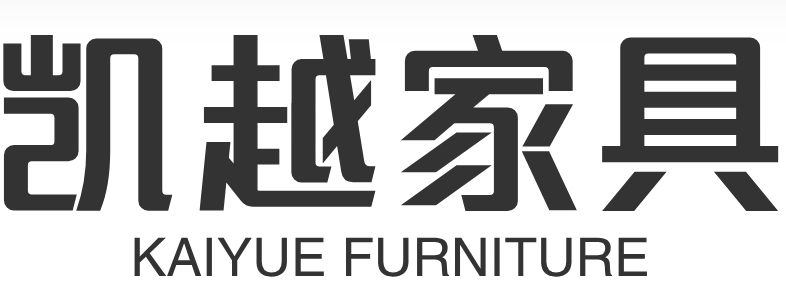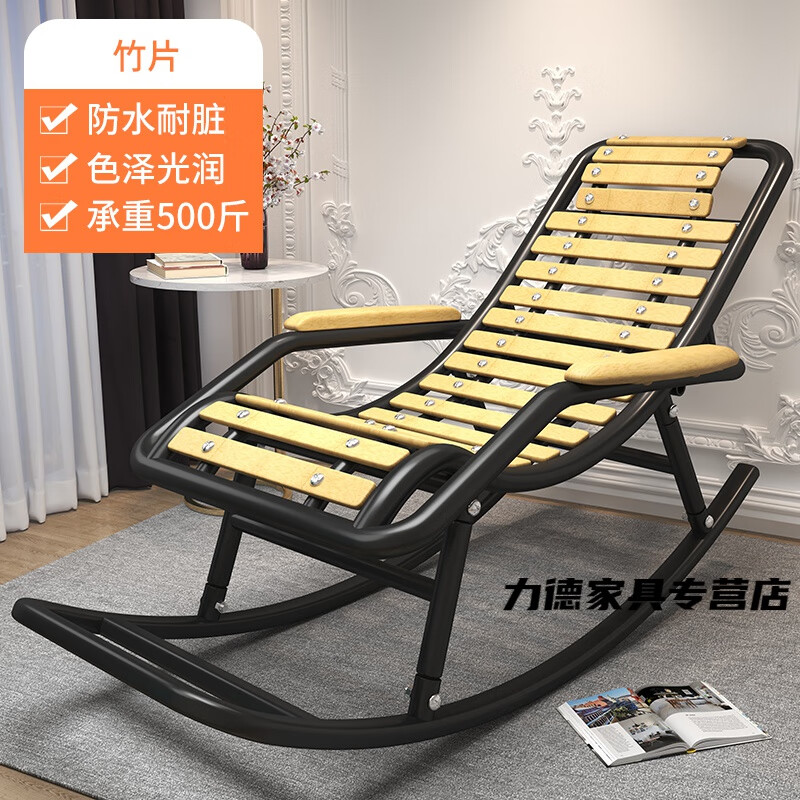1. a / an
错:I have a MP4.
对:I have an MP4.
我有一个MP4。
错:Ann has a honest face.
对:Ann has an honest face.
安有一张诚实的面孔。
错:English is an useful language.
对:English is a useful language.
英语是一门有用的语言。
(a用于以辅音音素为首的词前;an用于以元音音素为首的词前。)
2. advice
错:She gave me a good advice.
对:She gave me a good piece of advice / some good advice.
她给了我一条 / 一些好建议。
3. afford
错:I can’t afford the money for a new coat.
对:I can’t afford (to buy) a new coat.
我承担不起买一件新外套的钱。/我买不起一件新外套。
(一般不用money作afford宾语。)
4. after
错:After you will leave, we will write to you every day.
对:After you leave, we will write to you every day.
你走后我们会每天给你写信。
(在after, as soon as等引导的时间状语从句中,用一般现在时表示将来。)
5. afternoon
错:in the afternoon of 3rd July
对:on the afternoon of 3rd July
在七月三日下午
(指一个特定的上午、下午、晚上介词用on。)
6. all
错:We all were delighted when we heard the news.
对:We were all delighted when we heard the news.
我们听到这个消息都很高兴。
(all通常放在第一个助动词之后或实义动词之前,如果实义动词是be,all紧跟其后。)
7. allow
错:It is not allowed to smoke here.
对:Smoking is not allowed here. / People are not allowed to smoke here.
这里不允许吸烟。
(allow不用于“It is not allowed to do sth”结构。)
8. although
错:Although I was frightened, but I couldn’t scream.
对:Although I was frightened, I couldn’t scream.
虽然我很害怕,但是当时我无法喊出来。
(although不与but连用,但可以与yet,still连用。)
9. and ( 最易犯的错误)
错:The problem was that he didn’t have any money and clothes.
对:The problem was that he didn’t have any money or clothes.
问题是他既没有钱也没有衣服。
(肯定句中用and,否定句中用or。)
10. another
错:My mother loved her old sewing machine, but on her birthday my father bought her another new one.
对:My mother loved her old sewing machine, but on her birthday my father bought her a new one.
我母亲喜欢她那台旧缝纫机,但我父亲在她生日那天又给她买了一台新的。
11. answer
错:They still can’t find an answer for this problem.
对:They still can’t find an answer to this problem.
他们依然找不到这个问题的答案。
(“……的答案”,介词用to。)
12. ask
错:She asked me what was the time.
对:She asked me what the time was.
她当时问我那是几点。
(what, who, when, where引导的宾语从句用陈述句语序。)
13.as well
错:When he reached her house, he noticed that there were no lights on. He couldn’t see her car as well.
对:When he reached her house, he noticed that there were no lights on. He couldn’t see her car either.
他到她家时,发现屋内没有灯光,也看不到她的车。
(as well很少用于否定句。)
14.belong to
错:The car is belong to my wife. / The car is belonging to my wife.
对:The car belongs to my wife.
这辆汽车是我妻子的。
15.big
错:While on holiday she caught a big disease.
对:While on holiday she caught a serious disease.
她在假期中得了一场大病。
16.borrow
错:Can I borrow your bathroom, please?
对:Can I use your bathroom, please?
我能借用一下你的卫生间吗?
(borrow只用于可搬动的东西。)
17. borrow
错:Can I lend your pen a minute?
对:Can I borrow your pen a minute?
我能否借你的笔用一用?
(borrow指“借入”;lend指“借出”,是相对主语而言的。)
18.both
错:I am pleased that my both children have called me.
对:I am pleased that both my children have called me.
我两个孩子都给我打了电话,我感到很高兴。
(both用于the, my, their等限定词之前。)
19.breakfast
错:We have the breakfast at seven every day.
对:We have breakfast at seven every day.
我们每天七点钟吃早饭。
(一日三餐前通常不用冠词。)
20.certain
错:She was very certain that they would offer her the job.
对:She was quite certain that they would offer her the job.
她极其肯定他们会给她这份工作。
(多用quite / fairly / absolutely修饰certain,很少用very。)
21.chalk
错:He wrote the sentence down on the blackboard with a red chalk.
对:He wrote the sentence down on the blackboard with red chalk.
他用红色粉笔把这个句子写在了黑板上。
(chalk是不可数名词,a piece of chalk一支粉笔)
22.change
错:A lot of changes have been taken place in the city.
对:A lot of changes have taken place in the city.
这个城市发生了很多变化。
(表示发生变化,change作主语时,要用主动语态,不能用被动语态。)
23. class
错:The whole class has gone to see the film.
对:The whole class have gone to see the film.
全班都去看电影了。
(class是集体名词,作主语时,若强调全体成员,谓语动词用复数;若强调整体,谓语动词用单数。)
24. congratulation
错:Congratulation on your success!
对:Congratulations on your success!
祝贺你成功!
(祝贺用复数形式。)
25.enter
错:A strange man entered into the room.
对:A strange man entered the room.
一个陌生人走进了房间。
(enter a room, a building等,不加into。)
26.everyday / every day
错:I go to the library everyday.
对:I go to the library every day.
(everyday是形容词,everyday English日常用语)
27.man
错:We saw two man doctors just now.
对:We saw two men doctors just now.
我们刚才看见两位男医生。
(man / woman构成的合成名词,表复数时,两者都变成复数形式。)
28. mine
错:I want you to meet an old friend of me.
对:I want you to meet an old friend of mine.
我想让你见见我的一个老朋友。
29. enough
错:We didn’t have enough food before.
对:We didn’t have enough food in the past.
过去我们没有足够的食物。
30. sun
错:Sun rises from the east.
对:The sun rises in the east.
太阳从东方升起。
31. cheap
错:The price of this coat is very cheap.
对:The price of this coat is very low. / This coat is very cheap.
这件外套非常便宜。
(price要用high / low形容,不能用expensive / cheap。)
32. choose
错:There are 2 programs for you to choose.
对:There are 2 programs for you to choose from.
有两个节目供你选择。
(从……中选择,from不能省。)
33. church
错:My parents go to the church every Sunday.
对:My parents go to church every Sunday.
我父母每周日都去做礼拜。
(go to church 做礼拜;go to the church 去教堂)
34. clothing
错:The women are selling second-hand clothings.
对:The women are selling second-hand clothes / clothing.
这些妇女在售卖二手衣服。
(clothing是衣服的总称,为不可数名词;clothes为复数名词,比clothing更常用。)
35. come from
错:The students who are coming from Japan are hard-working.
对:The students who come from Japan are hard-working.
那些日本学生非常刻苦。
(come from (出生于;来自) 不用于进行时。)
36. common
错:Nowadays it is common that women go out to work.
对:Nowadays it is common for women to go out to work.
现在妇女出去工作很普遍。
(没有“it is common that …”句式,只有“it is common for sb to do sth”。)
37. cooker
错:My wife is an excellent cooker.
对:My wife is an excellent cook.
我太太烧菜是一流好手。
(cooker 厨具;cook 厨师)
38. cup
错:We enjoyed a cup of wine with our meal.
对:We enjoyed a glass of wine with our meal.
我们进餐时喝了一杯酒。
(“一杯茶/ 咖啡”用a cup of;“一杯水/ 葡萄酒/ 啤酒/ 香槟”用a glass of)
39. day
错:I don’t do much exercise in these days.
对:I don’t do much exercise these days.
现在我不大锻炼了。
(these days前不用介词;in those days可以。)
40. dead
错:Her mother has died for ten years.
对:Her mother has been dead for ten years. / Her mother died ten years ago.
她的母亲去世十年了。
(die是非延续性动词,不能与段时间连用。)
41. despite
错:Despite the train was empty, he came and sat in front of me.
对:Despite the train being empty, he came and sat in front of me.
尽管火车车厢很空,他却过来坐在我前面。
(despite是介词,不能接从句。)
42. difficult
错:I was very difficult to make a fire in the open because of the wind.
对:It was very difficult for me to make a fire in the open because of the wind.
风太大,我很难在户外把火生起来。
43. discount
错:He bought the house at a 90% discount.
对:He bought the house at a 10% discount.
他以九折的价钱买了这房子。
44. discuss
错:We spent two hours discussing about the course.
对:We spent two hours discussing the course.
我们花了两小时讨论这个课程。
(discuss为及物动词,后不用介词,直接接宾语。)
45. dozen
错:I bought two dozens of apples.
对:I bought two dozen of apples.
我买了24个苹果。
(dozen被具体数字修饰时用单数;dozens of指“许多”。)
46. each
错:They each has a beautiful daughter.
对:They each have a beautiful daughter.
他们每个人都有个漂亮的女儿。
47. efficient
错:The medicine proved very efficient.
对:The medicine proved very effective.
这药证明非常有效。
(efficient 效率高的;effective有效的)
48. elder
错:The two ladies are twins. Can you tell which is the older?
对:The two ladies are twins. Can you tell which is the elder?
这两位女士是孪生姐妹。你能分清哪位是年长者吗?
(older是比较级形容词,不能用作名词;elder这里是名词,指家庭里的年长者。)
49. elect
错:They elected Smith as the mayor.
对:They elected Smith as mayor.
他们选史密斯当市长。
(选举某人任某职务用“elect sb (as) sth”。)
50. else
错:His work is better than anyone’s else.
对:His work is better than anyone else’s.
他的工作比别的任何人的都要好。
(else构成所有格时,-’s加在else之后,如someone else’s (别的某人的)。)
51. enough
错:The time isn’t enough for us to catch the next train.
对:There isn’t enough time for us to catch the next train.
我们没有足够的时间赶下一班火车。
(除了主语是there,it或一定的数量/ 数目外,enough一般不用作表语。)
52. evening
错:I arrived home in the evening of May 15th.
对:I arrived home on the evening of May 15th.
我是在5月15日晚上到家的。
(在具体某天的上、下午、晚上,介词用on不用in。)
53. every
错:I have to visit the hospital every three week.
对:I have to visit the hospital every three weeks.
每隔三个星期我就得到医院去看病。
54. everyone / every one
错:If every one is ready, I’ll begin.
对:If everyone is ready, I’ll begin.
如果大家都准备好了,我就开始。
错:Everyone of us has made some friends during these 3 years.
对:Every one of us has made some friends during these 3 years.
在这三年里,我们每个人都交了一些朋友。
(everyone 每个人;人人;every one一群人或物中的每一个)
55. expensive
错:The price of this suit is quite expensive.
对:The price of this suit is quite high. / This suit is quite expensive.
(price不能用expensive / cheap来形容,要用high / low。)
56. explain
错:He explained me the problem.
对:He explained the problem to me.
他向我解释了这个问题。
(向某人解释/ 说明某事用explain sth to sb,没有explain sb sth用法。)
57. furniture
错:We need to buy a new furniture.
对:We need to buy a new piece of furniture.
我们需要买件新家具。
(furniture是不可数名词,一件家具a piece of furniture。)
58. get in / get on
错:Get on the car, and we’ll go for a drive.
对:Get in the car, and we’ll go for a drive.
上车吧,咱们兜风去。
错:He got on a taxi and went to the office.
对:He got in a taxi and went to the office.
他上了一辆计程车,上班去了。
(get in a car / taxi; get on a bus / train / plane)
59. get off / get out of
错:She got out of the bus.
对:She got off the bus.
她下了公交车。
(get out of a car / taxi; get off a bus / train / plane)
60. goods
错:The goods was not delivered in time.
对:The goods were not delivered in time.
这批货物没有及时送达。
(goods是复数名词,作主语时,谓语动词用复数。)
61. hair
错:Her hairs have turned grey.
对:Her hair has turned grey.
她的头发已经变得灰白了。
错:There’s hair in my soup.
对:There’s a hair in my soup.
我的汤里有根头发。
(hair指人的全部头发时,是不可数名词;指一根或几根头发时是可数名词。)
62. happen
错:It’s the best thing that has ever happened on me.
对:It’s the best thing that has ever happened to me.
这是我所遇到的最好的事。
(发生在某人/ 某物身上用“happen to sb / sth”。)
63. help
错:I can’t help (to) laugh when I watch the funny show!
对:I can’t help laughing when I watch the funny show!
我观看这场滑稽的演出时,忍不住笑起来!
错:Sorry, Mum. I can’t help washing dishes today.
对:Sorry, Mum. I can’t help (to) wash dishes today.
对不起,妈妈,我今天不能帮忙洗碗了。
(can’t help doing sth 情不自禁/ 忍不住做某事;can’t help (to) do sth 不能帮忙做某事)
64. here
错:Here the bus comes at last!
对:Here comes the bus at last!
公交车终于来了。
(here / there位于句首时,谓语要提到主语前面用全部倒装。如果主语是代词,不用倒装,如:Here he comes. 他来了。)
65. his
错:The dentist told him he must brush teeth after each meal.
对:The dentist told him he must brush his teeth after each meal.
牙医告诉他每次饭后都必须刷牙。
(英语中表示属于某人身体的一部分或属于某人所有之物的名词前一般都要加物主代词。)
66. home
错:As soon as I arrived at home, I knew that something was wrong.
对:As soon as I arrived home, I knew that something was wrong.
我一到家就知道出事了。
(go / get / return / arrive … home中,home前不用介词。)
67. hope
错:I hope you all to have an interesting afternoon.
对:I hope (that) you all have an interesting afternoon.
我希望你们各位下午过得愉快。
(没有hope sb to do sth结构,只有hope to do sth 和hope that …)
68. how
错:Could you describe how the driver is like?
对:Could you describe what the driver is like?
你能形容一下那个司机怎么样吗?
(What is sb / sth like? 某人/ 某物怎么样?)
69. how to do / what to do
错:You can go online and find out how to do.
对:You can go online and find out how to do it / what to do.
你可以上网查查怎么办。
(what to do = how to do it 怎么办)
70. how much
错:How much is the price of this watch?
对:What is the price of this watch? / How much is this watch?
这块手表多少钱?
71. hundred
错:Five hundreds children are born in the city every day.
对:Five hundred children are born in the city every day.
这个城市每天有500个孩子出生。
(hundred/thousand/…被具体数字修饰时用单数;概数用hundreds / thousands / … of。)
72. if
错:If it will rain, I shall come and meet you in the car.
对:If it rains, I shall come and meet you in the car.
如果天下雨,我会开车来接你。
(if引导的条件状语从句,用一般现在时表示将来。)
73. immediately
错:Let me know immediately she will arrive.
对:Let me know immediately she arrives.
她一到,就告诉我。
(immediately = as soon as 一……就……;引导的时间状语从句用一般现在时表示将来。)
74. indoor
错:As it was raining we decided to stay indoor.
对:As it was raining we decided to stay indoors.
由于下雨,我们决定留在室内。
(indoor是形容词;indoors是副词)
75. information
错:I am writing to ask for some informations about your culture.
对:I am writing to ask for some information about your culture.
我写信想询问一些 你们的文化方面 。
(information是不可数名词;一则消息a piece of information。)
76. join
错:He has joined the army for three years.
对:He joined the army three years ago.
他三年前参了军。
对:He has been in the army for three years.
他已参军三年了。
(join是非延续性动词,不能与表示一段时间的状语连用。)
77. kind
错:It’s very kind for you to help me.
对:It’s very kind of you to help me.
你帮助我真是太好了。
78. leave
错:When will the woman leave to London?
对:When will the woman leave for London?
那位女士什么时候启程去伦敦?
(动身去……leave for …)
79. look forward to
错:I’m looking forward to see you.
对:I’m looking forward to seeing you.
我期待着与您会面。
(look forward to中的to为介词,后接动词-ing。)
80. lunch
错:My plan is to visit the library and then have the lunch at a restaurant.
对:My plan is to visit the library and then have lunch at a restaurant.
我的计划是去图书馆,然后到一家饭店吃午饭。
(吃早/ 午/ 晚饭have breakfast / lunch / supper,lunch前不加冠词。)
81. make
错:I was made wait four hours before I was examined by a doctor.
对:I was made to wait four hours before I was examined by a doctor.
我被迫等了四个小时才有一个医生给我做检查。
(make作使役动词用于被动语态时,用be made to do sth,to不能省略。)
82. marry
错:She married with Jack Brown.
对:She married Jack Brown. / She got married to Jack Brown.
她和杰克·布朗结婚了。
(某人和某人结婚用sb marry sb或sb get married to sb。)
83. mean
错:Protecting our environment means to protect ourselves.
对:Protecting our environment means protecting ourselves.
保护环境就意味着保护我们自己。
(mean to do sth 打算做某事;mean doing sth意味着做某事)
84. million
错:The book sold several millions copies.
对:The book sold several million copies.
这本书售出了几百万册。
(million前有具体数字或several修饰时,用单数;没具体数字修饰时用millions of。)
85. mind
错:Would you mind to open the window?
对:Would you mind opening the window?
你介意打开窗户吗?
(mean doing sth 介意做某事)
错:I made up my mind going for a swim.
对:I made up my mind to go for a swim.
我决定去游泳。
(make up one’s mind to do sth 决定做某事)
86. moment
错:I’d like to see him in my office the moment he will arrive.
对:I’d like to see him in my office the moment / minute he arrives.
他一到,我就要在办公室见到他。
(the moment / minute引导的时间状语从句中用一般现在时表示将来。)
87. music
错:A new music was specially written for the occasion.
对:A new piece of music was specially written for the occasion.
为了这个盛会专门写了一首新曲子。
(music是不可数名词;一首乐曲a piece of music。)
88. nature
错:People need to get close to the nature and enjoy the sun.
对:People need to get close to nature and enjoy the sun.
人们需要接近自然、享受阳光。
(nature指“大自然”时,其前不用冠词。)
89. never
错:Never I have heard anything like it!
对:Never have I heard anything like it! / I have never heard anything like it!
我从未听说过这样的事!
(never位于句首时,句子用部分倒装语序。)
90. news
错:I’m looking forward to hearing a good news from you.
对:I’m looking forward to hearing some good news from you.
我盼望听到你的好消息。
(news是不可数名词;一则消息a piece of news。)
91. north
错:I am now living in North England.
对:I am now living in the north of England .
我现在住在英格兰北部。
(North / South / East / West用于国家或地区的名称,其前不用冠词,如North America;the north / south / east / west of指“……的方位”。)
92. not only
错:Not only their results improved, but also their behavior became better.
对:Not only did their results improve, but also their behavior became better.
不仅他们的成绩提高了,而且行为也有所改善。
(not only ... but (also) 连接两个并列分句时,not only所在的句子要用部分倒装语序。)
93. once
错:Once it will stop raining, we can go out.
对:Once it stops raining, we can go out.
雨一停,我们就能出去。
(once引到的时间状语从句,用现在时表示将来。)
94. opinion
错:According to Jack’s opinion, we should know more about good manners.
对:In Jack’s opinion / According to Jack, we should know more about good manners.
在杰克看来,我们应更懂礼貌。
(“根据某人的观点”要说in sb’s opinion或according to sb,不说according to sb’s opinion。)
95. own
错:I now have enough money to buy an own car.
对:I now have enough money to buy my own car.
我现在有足够的钱买一辆自己的汽车了。
(own总是用在所有格之后。)
96. paper
错:Each of us was given a clean paper to write on.
对:Each of us was given a clean piece of paper to write on.
我们每个人都得到一张干净的纸来写。
(paper作“纸”讲时是不可数名词;a piece of paper一张纸。)
97. passed / past
错:In the passed three years, you have given me much help with my study.
对:In the past three years, you have given me much help with my study.
在过去的三年里,你在学习上给予我很多帮助。
错:He walked passed a park.
对:He walked past a park.
他经过了一座公园。
错:Paul past the test.
对:Paul passed the test.
保罗通过了考试。
(passed是动词pass的过去时/ 过去分词;past是形容词或介词。)
98. pay
错:“Who paid the tickets?” I asked.
对:“Who paid for the tickets?” I asked.
“是谁出钱买的票?”我问道。
(pay后一般接钱数,for后接所买的东西。)
99. police
错:The police was not able to find anything.
对:The police were not able to find anything.
警方没找到任何线索。
(police是集体名词,作主语时,谓语动词用复数。)
100. quite
错:He’s a quite good soccer player.
对:He’s quite a good soccer player.
他是个相当不错的足球运动员。
(quite要用在冠词a / an前。)
101. would rather … than
错:He said he would rather to go by train than to fly.
对:He said he would rather go by train than fly.
他说他宁愿坐火车,不愿乘飞机。
(would rather do … than do… 宁愿做……,不愿做……)
102. really
错:It was only a short trip but we had really a good time.
对:It was only a short trip but we had a really good time.
对:It was only a short trip but we really had a good time.
那只是一次短程的旅行,但是我们确实过得很愉快。
(really意为“非常;极其”时,通常放在所修饰的形容词或副词之前;或者放在助动词之后实义动词之前。)
103. reason
错:The reason I didn’t buy the coat was because I thought it was too expensive.
对:The reason I didn’t buy the coat was that I thought it was too expensive.
我没买这件外套的原因是我认为它太贵了。
(reason作主语时,其后的表语从句用that引导,不用because。)
104. salary
错:His salary is about a hundred and fifty pounds a week.
对:His wage is about a hundred and fifty pounds a week.
他的工资约为每周150镑。
(salary指月薪;wage指时、日、周薪。)
105. school
错:He wanted to leave the school and work.
对:He wanted to leave school and work.
他想辍学去工作。
(leave school 辍学;school前不用冠词。)
106. see
错:Betty is often seen help the old man with his housework.
对:Betty is often seen to help the old man with his housework.
经常见到贝蒂帮助那个老人做家务。
(see意为“看见”,用于被动语态时,用be seen to do sth,to不能省略。)
107. some
错:Would you like any milk?
对:Would you like some milk?
你要喝点牛奶吗?
(some多用于肯定句,any多用于否定句和疑问句,但是在疑问句中,希望得到肯定回答或表示建议、请求时,用some。)
108. space
错:There are hundreds of millions stars in the space.
对:There are hundreds of millions stars in space.
太空中有数以亿计的恒星。
(space指太空时,其前不用冠词。)
维克多英语
为中国人学习英语提供帮助
转载请注明:凯越户外家具 » 室内家具 » 许多家具的英语(许多家具英文翻译)
版权声明
本文仅代表作者观点,不代表B5编程立场。
本文系作者授权发表,未经许可,不得转载。
























发表评论